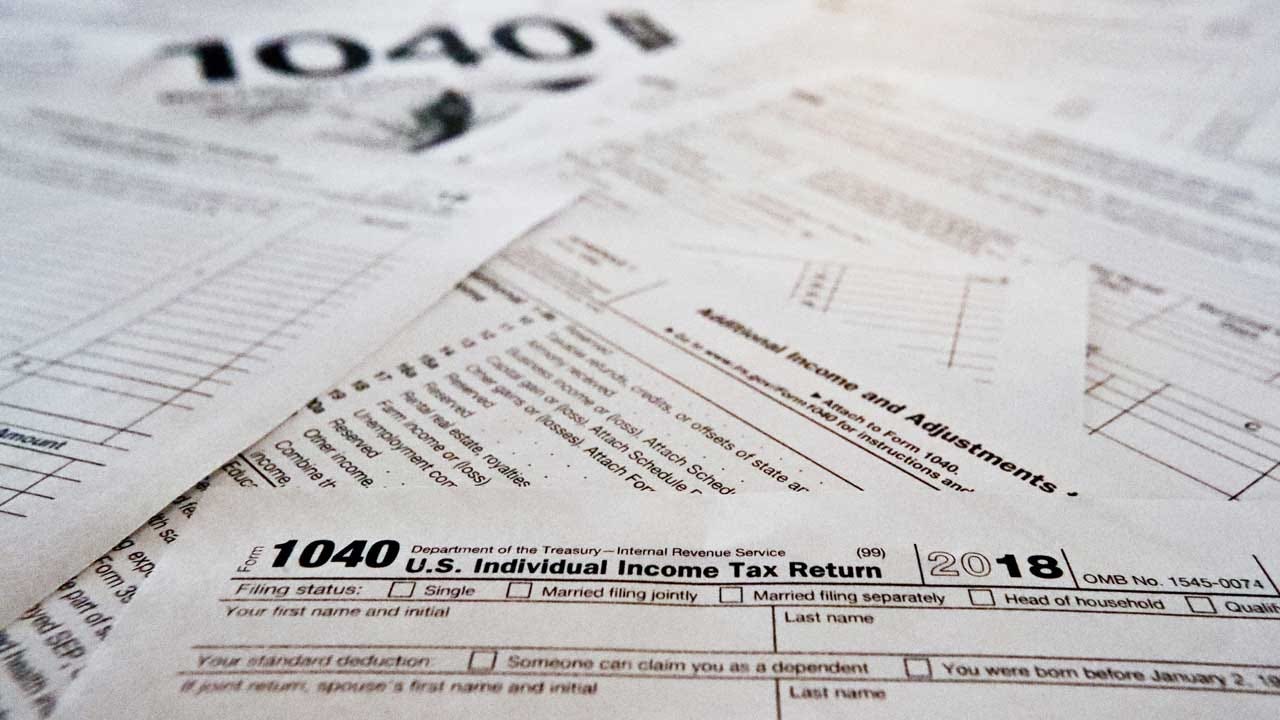19 Major US Companies Pay Little To No Tax, Report Says
Nineteen of the biggest American corporations paid little or no taxes last year, according to a new analysis of financial filings by liberal think tank Center for American Progress (CAP). That comes as U.S. companies enjoyed their most profitable year since 1950, thanks to government support as well as a surge in consumer spending as the pandemic eased.Wednesday, April 27th 2022, 4:22 am
Nineteen of the biggest American corporations paid little or no taxes last year, according to a new analysis of financial filings by liberal think tank Center for American Progress (CAP). That comes as U.S. companies enjoyed their most profitable year since 1950, thanks to government support as well as a surge in consumer spending as the pandemic eased.
Corporations received a major tax break in 2017 when President Trump signed the Tax Cuts and Jobs Act, which lowered the corporate tax rate to 21% from 35%. But the CAP analysis found that many large businesses are paying much less than the statutory 21% rate — sometimes even driving their tax rate below zero, effectively getting a refund — thanks to loopholes such as deductions and write-offs.
The findings come at a time the Biden administration is pushing for a new corporate minimum tax of 15% — a baseline rate that advocates say would help ensure that profitable companies pay their fair share.
"Our corporate tax code is broken when some of the biggest and most profitable companies in the country are paying little or no taxes," Seth Hanlon, a senior fellow at CAP and a co-author of the report, told CBS MoneyWatch.
Critics note that corporations often redirect profits toward shareholders through share buybacks and dividends, bolstering the finances of the investors, but not necessarily helping rank-and-file workers. About 9 in 10 Americans who earn more than $100,000 own stock, either directly or indirectly through retirement plans; but only 2 in 10 with earnings below $35,000 have investments, according to Pew Research.
The corporations that paid little or no taxes in 2021 include some of the nation's biggest companies, such as Amazon.com, AT&T, Charter Communications and AIG, according to the report, which analyzed financial filings for Fortune 100 companies.
To be sure, corporations aren't breaking the law by using loopholes to lower their taxes, but it underscores the need for reform, Hanlon said. "The fact there are so many holes in the corporate tax undermines the overall fairness of the tax code."
"Significant" local taxes
Charter Communications said in a statement to CBS MoneyWatch that its low federal tax burden was due to $40 billion in investments in technology and infrastructure. That led to taxes being deferred for future payment, as well as a decreased overall tax burden, it said.
"Charter pays significant income taxes in most state and local jurisdictions and will be a meaningful federal cash tax payer this year," the telecommunications company said.
Insurance giant AIG pointed to a 2021 regulatory filing that stated that its effective tax rate on continuing operations was 18% that year. The CAP analysis doesn't include deferred taxes, which companies often self-report as part of their current effective tax rate, nor does it include foreign taxes.
Amazon said its U.S. taxes "reflect our investments, employee compensation and current tax laws."
"In 2021, we reported $2.3 billion in federal income tax expense, $5.2 billion in other federal taxes, and more than $4 billion in state and local taxes of all types," a spokesperson said in a statement. We also collected an additional $22 billion in sales taxes for U.S. states and localities."
A spokesperson for chemicals maker Dow disputed CAP's findings, saying the report "mischaracterizes Dow's tax reporting by simply taking the company's current tax expense for 2021 as a percentage of domestic income for the same year." The company complies with all tax laws, both in the U.S. and internationally, the company said.
The spokesperson added, "In doing so, it disregards deferred taxes, which CAP acknowledges, but CAP's analysis of taxes paid is further distorted (reduced) by tax adjustments that relate to prior years and therefore have nothing to do with Dow's 2021 domestic income."
Corporate tax rates in previous eras were much higher, Hanlon noted. "If you look historically, corporations paid much higher rates — both the nominal rate and the effective rates were much higher in previous decades, and they fell even further in 2017," he said. "It hasn't always been this way."
First published on April 26, 2022 / 2:30 PM
© 2022 CBS Interactive Inc. All Rights Reserved.
More Like This
April 27th, 2022
March 11th, 2024
December 1st, 2023
November 2nd, 2023
Top Headlines
April 25th, 2024
April 25th, 2024










